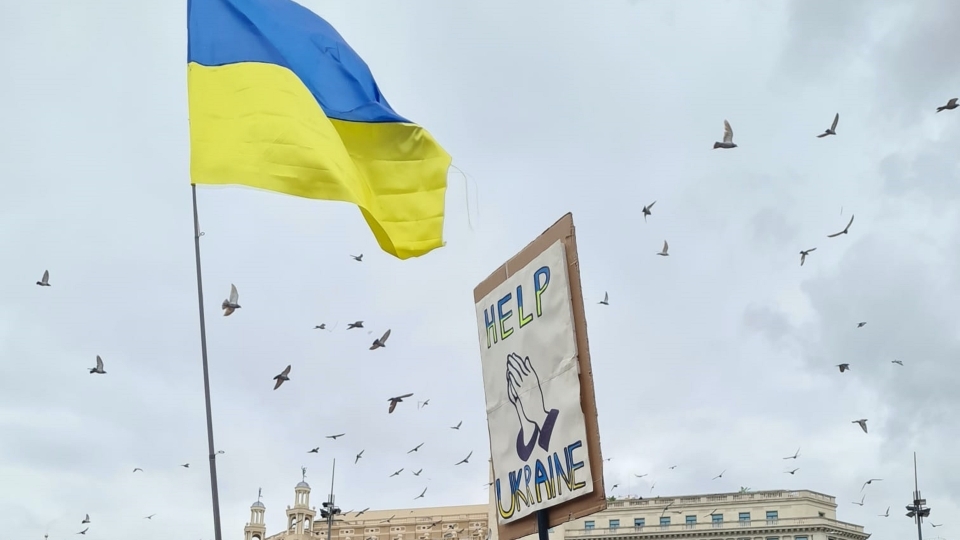Yovanovitch to Offer Insider’s View of What’s at Stake in Ukraine
April 3, 2023
- Author
- Jay Pfeifer

Bestselling author and former U.S. Ambassador to Ukraine Marie Yovanovitch will discuss challenges to advancing U.S. national interests worldwide, but particularly in countering Russia’s aggression in Ukraine and its consequences.
A career diplomat and former U.S. Ambassador to Ukraine, Marie Yovanovitch found herself in an unanticipated role as a key player in the 2019 impeachment proceedings against then-President Donald Trump.
Davidson College will host Yovanovitch and former U.S. Ambassador to Bulgaria and current President of the American Foreign Service Association Eric Rubin to discuss challenges to advancing U.S. national interests worldwide, but particularly in countering Russia’s aggression in Ukraine and its consequences.
This event is sponsored by the Bank of America.
Ambassador Yovanovitch previewed her appearance with this Q&A:
Russia invaded Ukraine over a year ago and seems to be sliding into a brutal stalemate. What else should the U.S. be doing to assist Ukraine right now?
I think we need to shift our thinking a little bit. President Biden and others have been saying that we are with Ukraine for as long as it takes. What does that really mean? I think we need to provide Ukraine as much as possible, as quickly as possible, so that Ukraine can win.
The Ukrainians are going to fight on. This is an existential struggle for Ukraine. Russia will keep fighting, because this is about Putin's personal legacy, his Peter the Great obsession, and his desire to rebuild the Soviet empire. We can choose to help Ukraine prevail and stop Russia in Ukraine, or we'll have to confront Russia later on, at a time and a place not of our choosing and perhaps not to our advantage.
What is the spillover effect of unchecked Russian aggression on the global rule of law? Are other countries watching how the world responds to Russia?
What Russia is doing is not only about recreating the empire. It's about undermining the international system. The system that was established after World War II is not perfect, but it has more or less kept the peace.
If we don't make it clear that this will not stand, he will keep on going. And it will embolden other dictators to do the same thing.
Everybody's watching this. Is the West going to stand up for a partner? Is the West going to stand up when the international rules have clearly been violated by Russia? Is the West going to stand up for our values?
And the answer has to be yes.
When Russia invaded Ukraine, the West responded with massive sanctions aimed at choking the Russian economy. Have they been effective?
We hear a lot about how they're not effective, that the Russian economy is still soldiering on. But with an economy as large as Russia's, sanctions don't work immediately. It's going to take a while for them to really pinch.
We do know they are working in particular areas. The obvious example is microchips, which are absolutely essential in a modern war. The Russians don't produce them and they can't get them legally. And so they're doing things like having their soldiers haul back dishwashers and washing machines from Ukraine.
At first people were puzzled when they saw this. We thought they were taking them back to their villages. But I think the theory now is that they are taking them back so they can be cannibalized for their chips to put in the weapons of war that will be aimed against Ukraine again.
The Russian invasion has confirmed Putin’s brutality among Western countries. But has the war affected his standing within his own borders?
It's hard for us to know because Russia is kind of a closed box. The government controls most of the communications.
Just looking at one aspect of this: A large number of people have left the country. We saw a big exodus last February. We saw another exodus after the conscription was announced in October of last year. And it’s easy to look at that and think that they’re shooting themselves in the foot.
But the Russians have an expression for it: You’re letting the people out of the country, you’re “letting off steam.” The people who would be in the best position to lead an opposition to these policies, to Putin himself, are being allowed to leave the country.
How did your experience under the Trump administration affect your view of American democracy?
My parents were immigrants to the United States and they brought my brother and I up to value the rights we have in the United States and also the responsibilities that we have as citizens. They grew up in countries that were autocratic. They knew what it means not to live with those freedoms.
And somewhere along the line—I'm not alone in this—I started taking those freedoms for granted.
What I realized in 2019 and then especially after the events of January 6, 2021, was that we need to tend our democracy. Each of us needs to do our part in terms of our civic responsibilities and keeping our democracies strong.



